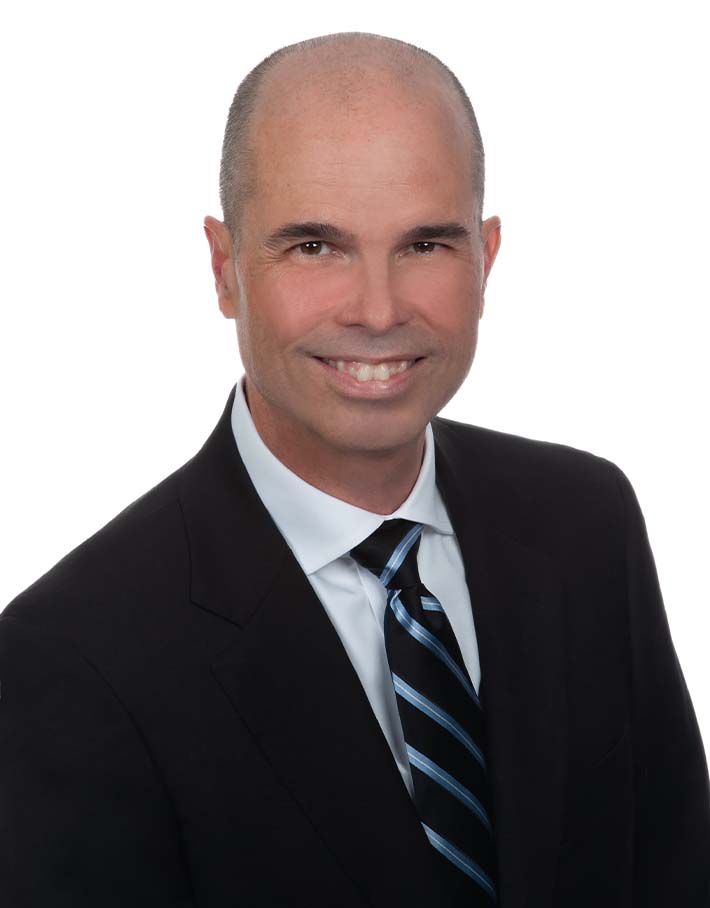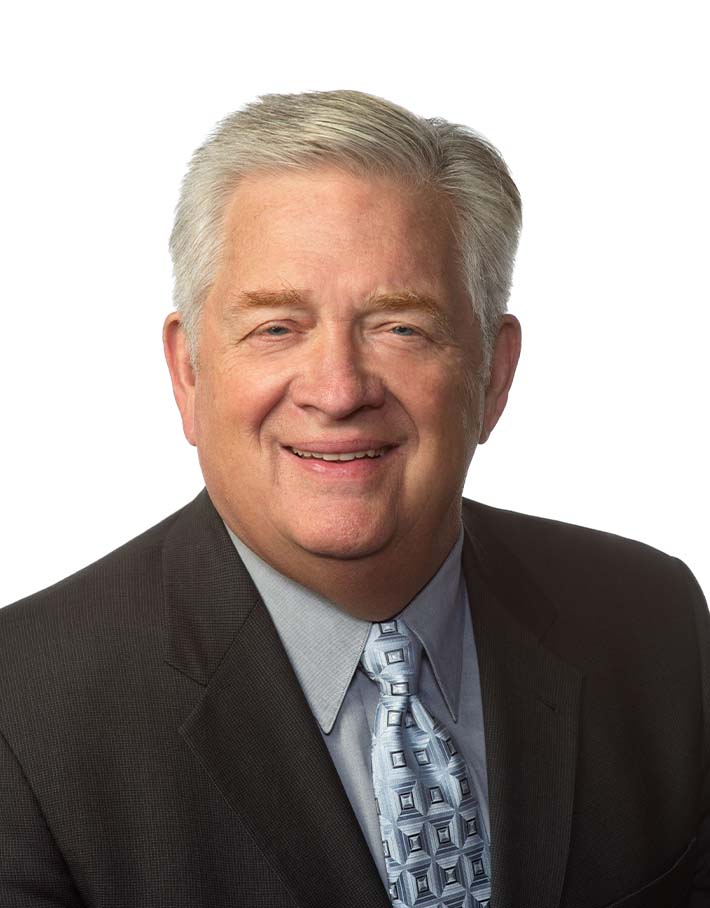Transitioning Your Book of Business
By Buddy Doyle and Steve Anderson
Subscribe to our original industry insights
As you consider starting your own investment advisor, how to transition your book of businesses is always a hot topic for discussion. Oyster experts, Buddy Doyle and Steve Anderson share their insights on broker protocol and other things to consider like employment agreements, commissions, and technology.
Transcript
Transcript provided by Temi transcript services
Libby Hall: Hi everyone, and welcome to today’s Oyster Stew podcast. As you consider starting your own investment advisor, how to transition your book of business is always a hot topic for discussion. In today’s podcast, Oyster experts Buddy Doyle, and Steve Anderson share their insights on Broker Protocol and other things to consider like employment agreements, commissions, and technology. Buddy, let’s get started.
Buddy Doyle: Thanks, Libby. I’m joined by Steve Anderson today. Steve. Welcome.
Steve Anderson: Thanks, Buddy. And Libby looking forward to the conversation.
Buddy Doyle: All right, today, we’re going to talk about transferring your book of business. Unless you’re starting a new RIA and you don’t have an existing book of business, in which case you can probably tune this one out. But for the rest of you, most of you, you’re currently working with clients. And I would imagine as you start a new RIA, you’re going to want to bring most of those clients, maybe all of those clients, maybe not, with you. Steve, you’ve been doing this for a while. What have you seen folks do when they start transferring their book of business?
Steve Anderson: Well, Buddy, you know the one thing I think it’s a good thing to look at, when you mentioned that, one thing I thought of, it’s also a good time to do a little bit of house cleaning, because you’ve probably got a few of those clients that you really don’t want. I mean, even though they’re either high maintenance, whatever the reason is, I’ve found that this is a great time to just say I’m going to leave 5% or 10 or whatever those clients back at the old firm, or just say, maybe you’d be better staying where you’re at. So I think sometimes if you eliminate those five or 10, it’s much easier to grow. A lot of times, they’re the people that take a lot of time and effort and don’t give you a lot of revenues. So I think it’s a good time to look at your book. It’s hard to do that. If you’re at the same, if you’re not changing firms, this just gives you an opportunity, gives the advisor an opportunity to say I’m going to thin my clientele out a little bit. I know we all try to build clients, but sometimes you have to take a step backwards to build a better client base.
Buddy Doyle: Yeah. Pruning can be very important for future growth. So it is a good time to take a look at that. My experience is, has been that most advisors when they’re starting a new RIA, do tend to find that most of their clients want to come with them. It’s always a big fear. You know, you hear people worry, will my clients come with me or not? But if you’ve evaluated the way you run your business and you feel good about it, good enough to start your own RIA, you should probably feel good enough that the majority of those clients will come with you. You might lose a few. I’ve seen instances where, reps have left a wire house. Maybe a big bank relationship is established with a client, and they may choose to stay because that’s where their liabilities are, in addition to their assets, and there may be certain benefits and features of that. But by and large, it seems like most advisors take a lot of their client base with them.
Steve Anderson: Yeah, I would agree. But I think a lot of what I see are the people that they want to take. They’re typically, well over 90% of those that come up over. It’s usually one or two surprises for whatever reason, they don’t come. But for the most part, that advisor that’s successful, he or she has been taking care of those clients for years. And so they want, they really are buying even though sometimes the people sell, oh, it’s the big-name firm, or whatever, but they’re really buying that advisor. They’re probably what he or she is telling them and helping them through the situation. So they’re for the most part going to move to that new firm unless they’re not having all the products or something like that. For the most part, they’re going to move with the advisor.
Buddy Doyle: Yeah. So there’s a few other things to keep in mind, which isn’t just what your clients are going to think about this. But Steve, you mentioned your existing firm and you may be forming an RIA where you’re going to keep your assets, held at the same firm that they’re at now. And you’ll have your own entity but maintain an independent relationship maybe on the broker dealer side in an independent firm. But there’s a lot to think through about where you’re coming from to where you’re going. And I wanted to mention the concept of the brokers protocol which is, if you go back in time about 20 years ago, firms got together. And it was a rep would leave, they’d go to another firm. The firm they were leaving would sue the new firm, put a temporary restraining order in place to try to prevent that rep from taking their clients, which the firm deems its clients and the rep deems, their clients.
And so when you have two people kind of looking at it the same way often courts would get involved and decide sort of what needs to take place. And a lot of times it was the hiring firm settling with the firm that the rep left. And what happened is over time firms got tired of suing each other. They realized they were all coming out pretty much even, right. We’ll sue you and we’ll settle with you for 30% and then you sue us, and we settle with you for 30% and everybody kept losing 30% or 50% or 70% plus attorney’s fees. Right? And the plus for the attorney’s fees was great for the attorneys, but it was bad for everybody right in the industry. It was just a sue each other over and over again. And so they established in the larger firms some rules of the road.
And originally it was just the largest firms working this out, because they had the largest expenses. But obviously this is a competitive industry. And so you can’t have sort of non-competitive practices. So the broker’s protocol got created. And what that does is, if your current firm that you’re working for is on the protocol and the firm that you’re going to is on the protocol, and as an RIA, you can join that protocol. Here’s the rules. Somebody leaves they have to resign. They’re allowed to take essentially the holiday card list of client names and contact information. They’re required to give us a spreadsheet of before you leave of what your client book looks like. And, and then there’s some things you can do and some things you can’t do. Outside of that agreement that firms voluntarily participate in there’s Reg S-P. There’s certain thresholds that firms set around rating and recruiting and how much production you can take out of one branch.
And so I think it’s very important to understand what the broker’s protocol is, what it is not. And if you’re in the brokers protocol, I think the rules are pretty straightforward. If you’re not going to join the brokers protocol or the firm you’re leaving is not, that’s where you probably want to also reach out to your counsel and discuss what you can take and what you can’t take. What your litigation risk might look like, and you’ll want to have an experienced attorney in that kind of area. Steve, have you run across any non-protocol firm activities and seen any practices that are good? And then I think we can talk about the ones that we know are not good.
Steve Anderson: No, I think we definitely have done that. And even with the protocol, I think it’s important Buddy, on when you’re leaving a firm to make sure that you do cross all those T’s and dot the I’s. And what I mean by that is, make sure you read an agreement that you’ve got, possibly an employment agreement with that old firm. What does it say you can do? And as you said, I think you gave a good example. If you think about the Christmas card list, that’s really what they can take because it’s really the name, address, email address, phone number. They can take an account name. They can say, this is my retirement account, but they can’t take the PO, the number, the account number. So in my view, when an advisor’s starting their own RIA or they’re joining another firm, it really is a good idea for them to consult counsel, make sure they know what they can do.
Make sure that some of them think, well, gee, I can be in there the month or the week before and download a whole bunch of things off my computer. Guess what? They can tell you everything you’re doing on that computer all the time. So you don’t want to set them up for a lawsuit that is going to cost you money and time. And even if you’re successful a lawsuit’s an irritant all the time. And what I I’ve seen from the wide range from the independent broker dealers, some simply have the case that’s your account. You can take everything with you if you leave. You know, everything that you’ve written in here, you can take with you. But again, understand what the ground rules are not to the point that I would sit down with that president of the broker dealer, or the president of the RIA and say I’m going to leave next Thursday. Tell me what I can do. I wouldn’t do that, but I’d be very aware of what’s going on, what the process is. I think that’s the best thing and to be prepared. Don’t just say, I’m going to retire or resign on April 1st and not have everything lined up. So you’re pretty well need to know, I’m going to go out there and reach out and contact those clients. Here’s the list of clients I’m going to contact. Even if the firm says you can, you know, we’re not going to restrict you or they’re a protocol firm, either way, make sure you’re doing it the correct way.
Buddy Doyle: Yeah. And some of those traps that you kind of need to run through could include training. And a lot of times when firms bring you in and they train you and they get you started, that’s a large investment that they’ve made in you. And they’d like to recover that. We see – hey, we had this existing banking relationship, and we referred this client over to you to handle their investments. And there’s often strings attached to those. So I think it is important to look at your employment agreement, make sure you understand it. And I would say it’s okay to be optimistic about your future, but don’t look at those issues in your employment contract optimistically. You’ll want to have your skeptic hat on when you’re leaving because that’s usually when things get a little contentious
Steve Anderson: You thought, they were all your friends, but if you went in and resign, they necessarily, aren’t all your friends. So it’s important to be cautious. You know, one of the things people sometimes miss Buddy, and you’d think it’s not that long of a thing – but it’s a promissory note. You know, maybe they joined that firm or they renewed when there was a change in management or whatever at the firm. And they agreed to stay there for seven years or whatever. The firm’s going to enforce whatever that promissory note says, they’re going to enforce. So again, do your homework, make sure you’re aware of what you’ve signed, what’s there. You definitely can move. I don’t want to say you can’t move because you can. People move every day, but just do it carefully.
Buddy Doyle: Yeah. Think about this. When you start your RIA, you’re taking on this fiduciary duty, you have a duty to your clients to act in their best interest. You have to keep in mind that people running the organization that you’re leaving have a duty to their shareholders to act in their best interest. Absolutely. And so your interests are not going to be aligned on this necessarily. And you know, look at your firm’s history. You can go out there and search the web and see if they’ve been engaging in litigation for reps that have left, what their issues are, and points of view are. That can be a pretty good indicator. And we’ve seen a lot of firms leaving the protocol as maybe their business style has not been attracting as many reps as it’s been losing. Firms take different tactics to keep their assets and they consider them to be their assets quite often. Whereas again, independent rep firms, as Steve said – Hey, that’s your book of business. We’re here to facilitate it.
Steve Anderson: And you know, even those Buddy, one of the things I think is an important thing to look at is to make sure that timing makes sense. And by that, I mean – frequently this may or may not be in a contract, but practice from a firm would be that if somebody leaves, they’re going to hold commissions, maybe for 60 days to see if there’s any chargebacks. Now they may not have done that when you were an active advisor there, but when you’re no longer there it’s not unusual for them to hold commissions for 60 days. So you want to plan for that and make sure you’ve got some plans in place to say – hey, I want to make sure I’ve got my budget in order that I can stand not having that other commission. But what you also tie in is maybe you’ve got a lot of trail commissions from a certain 12B1S, from a certain fund or mutual fund family. Well, don’t move right about the time those are going to get paid. Think about that. Think, make sure that move date makes sense for you. You’re never going to cover everything, but just think about those things of when I’m going to move.
Buddy Doyle: Yeah. Have a plan. Have a plan, be prepared because the other thing you’re going to want to do is get those assets transferred as quickly as you can when you’re in your new firm. And there is a process to transfer those assets. It does take a little while. You’re going to have to fill out some paperwork with your clients and have them sign off on that for that process to get started. And of course, you won’t be earning anything until those assets are over there. So that’s something to just be prepared for and to think through. But once you’re moving, you want to move very deliberately, very quickly and prioritize your client book to make sure that you’re doing this in the order you want to go in.
Steve Anderson: Yeah, that makes a lot of sense to prioritize to get those most important people. Here’s the top 20, I want to make sure I call them right away and talk about it. One thing that’s helped people transition from one firm to the other has been technology. There’s a lot of firms that now specialize to take all those multitude of firm forms you need to get done and make it simpler. You know, they’ve got some names and things. They can take it off of a CRM or wherever you’ve got that Christmas card list. As you said, Buddy, take that list, they’re able to pre-populate a lot of forms where at one time they had to do that by hand. Today, technology gives them a lot of heads up to do that quicker and faster.
Buddy Doyle: Yeah. And I think the other risk, and I kind of remember the old proverb, if you want to go fast, go alone; if you want to go far go together, is – if you are resigning as part of a team, you’re leaving and you’re planning on bringing some other advisors with you to your new organization, you definitely want to make sure you understand rating and recruiting practices and where those risks fall. And that’s a really good time to talk to a litigator on your behalf to make sure you don’t cross any lines and end up getting sued and likely have a paid settlement with your firm.
Steve Anderson: Well, I think we can balance things out, Buddy. First we talked about the protocol saying that it was sort of the attorney’s full employment act, which you know, prior to that it was. But now we’re also saying here’s a way to go talk to the attorneys because you really, this is not where you want to save money is by not talking to that good securities attorney who has helped other advisors transition. It’s well worth the cost to sit down with them, have them give you a game plan to how this is going to work. Makes a lot of sense.
Buddy Doyle: Yeah. If you want to get advice, you should go to the experts. And you know, some of us are in the expert business. Some of us manage portfolios for our clients and give them plans and advice for a fee. Attorneys give advice for a fee around leaving one firm and going to another and clients learn from you about risk and how to manage that risk. You’ll learn the same thing from them. So it’s very important. Treat your business like you would any investment in your portfolio. Manage that risk and you should be okay,
Steve Anderson: But work your plan. Make sure that as you said, Buddy, you’ve got to have a plan. So get a plan, get a date that makes sense for a lot of things and then transition, because it does work. People every day are transitioning, going to a new firm. The key is you want to go to the new firm, take as many, not all in my opinion, not everybody, but you want to take as many of those clients as you can to the new firm and do it as quickly as you can. This is the speed. Speed definitely helps here.
Buddy Doyle: Yep. Client signing parties can be kind of interesting. I’ve seen folks do those and that works well. Just having that sort of process and lining it up to how your culture of your organization exists is going to be good. There’s as many ways to do this as times it’s been done.
Steve Anderson: Correct. And talk to the new firm that you’re joining. They often, obviously they’ve done this several times. They can help you and tell you best practices. Tell you what worked before, what hasn’t worked. You want that firm that’s going to try something new. That’s a good deal. I never, even if it worked before, I want to see if there’s a better way, let’s break it and do something better the next time. But that’s a good experience for you. You haven’t done it before. That firm has that you’re joining. Have them help you. Have them give you that plan.
Buddy Doyle: I will say if you’re joining an organization that says, do just bring those records, it doesn’t matter. We’ll prefill your agreements for you before you resign and have those all ready to go. Again, talk to an attorney about that. That may not be a firm you want to join.
Steve Anderson: Yeah. The word that came to mind when you were saying that, Buddy, is if you’re an advisor changing firms, you’ve got a list of people at firms you may want to join. If a firm tells you that, the answer you should do is next. Who’s the next one on my list of firms I want to join? Because is they were that sloppy with that, they’re going to be sloppy with other things, too. You’re not going to like that experience. I can almost guarantee you, you’re not going to like that experience.
Buddy Doyle: I will encourage you to think through this. And if you have any questions along the way, you can always reach out to those of us over here at Oyster. And we’d be happy to let you talk to some clients that have done this before and that’s a good thing, too. Don’t forget, thousands and thousands and thousands of people have gone down this path already and survived. Ask them what their experience was like. And they’ll share it.
Steve Anderson: Absolutely. I’ll add one adjective to that sentence, they successfully survived. You know, it worked, they may have had a bruise, but they did it, got successful and they enjoy that new place a lot more. They did their research and found the right home for them. Every home’s not a home for everybody. Every firm’s not a firm for everybody, but when they find the right one. It’s a good match.
Libby Hall: Thanks everyone for listening. If you’d like to learn more about our experts and how Oyster can help you on your journey to starting your own investment advisor, visit our website oysterllc.com. If you like what you heard today, follow us on whatever platform you listen to and give us a review. Reviews make it easier for people to find us. Have a great day.




